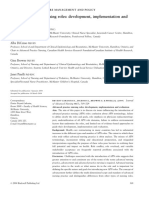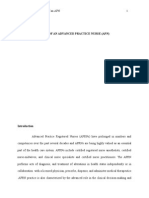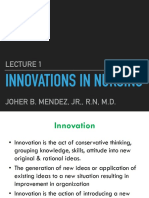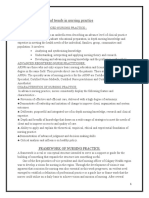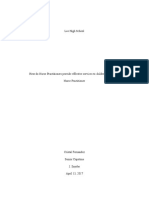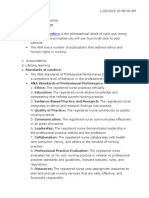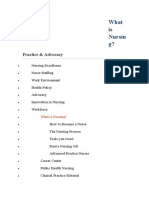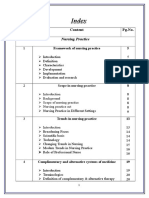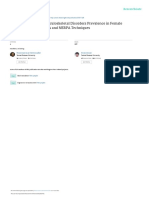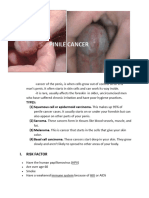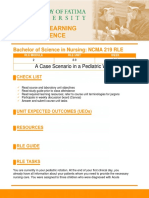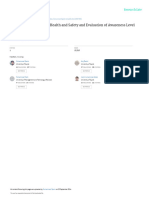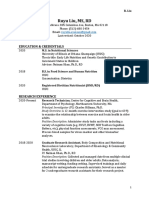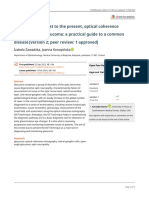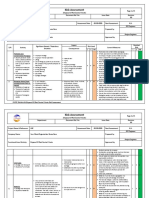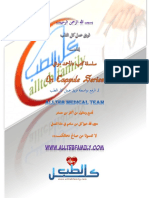0% found this document useful (0 votes)
61 views9 pagesModule 8 Assignment Done - Edited
The paper discusses the evolving role of advanced registered nurses (ARNs) in the healthcare system, emphasizing their increasing responsibilities in leadership, policy influence, and patient care. It highlights the importance of professional organizations like the American Nurses Association and the American Association of Nurse Practitioners in advocating for expanded practice authority for ARNs. A key issue addressed is the debate over full practice authority, which allows nurse practitioners to operate independently, impacting access to care and the overall healthcare landscape.
Uploaded by
onlinewriting75Copyright
© © All Rights Reserved
We take content rights seriously. If you suspect this is your content, claim it here.
Available Formats
Download as DOCX, PDF, TXT or read online on Scribd
0% found this document useful (0 votes)
61 views9 pagesModule 8 Assignment Done - Edited
The paper discusses the evolving role of advanced registered nurses (ARNs) in the healthcare system, emphasizing their increasing responsibilities in leadership, policy influence, and patient care. It highlights the importance of professional organizations like the American Nurses Association and the American Association of Nurse Practitioners in advocating for expanded practice authority for ARNs. A key issue addressed is the debate over full practice authority, which allows nurse practitioners to operate independently, impacting access to care and the overall healthcare landscape.
Uploaded by
onlinewriting75Copyright
© © All Rights Reserved
We take content rights seriously. If you suspect this is your content, claim it here.
Available Formats
Download as DOCX, PDF, TXT or read online on Scribd
/ 9
















